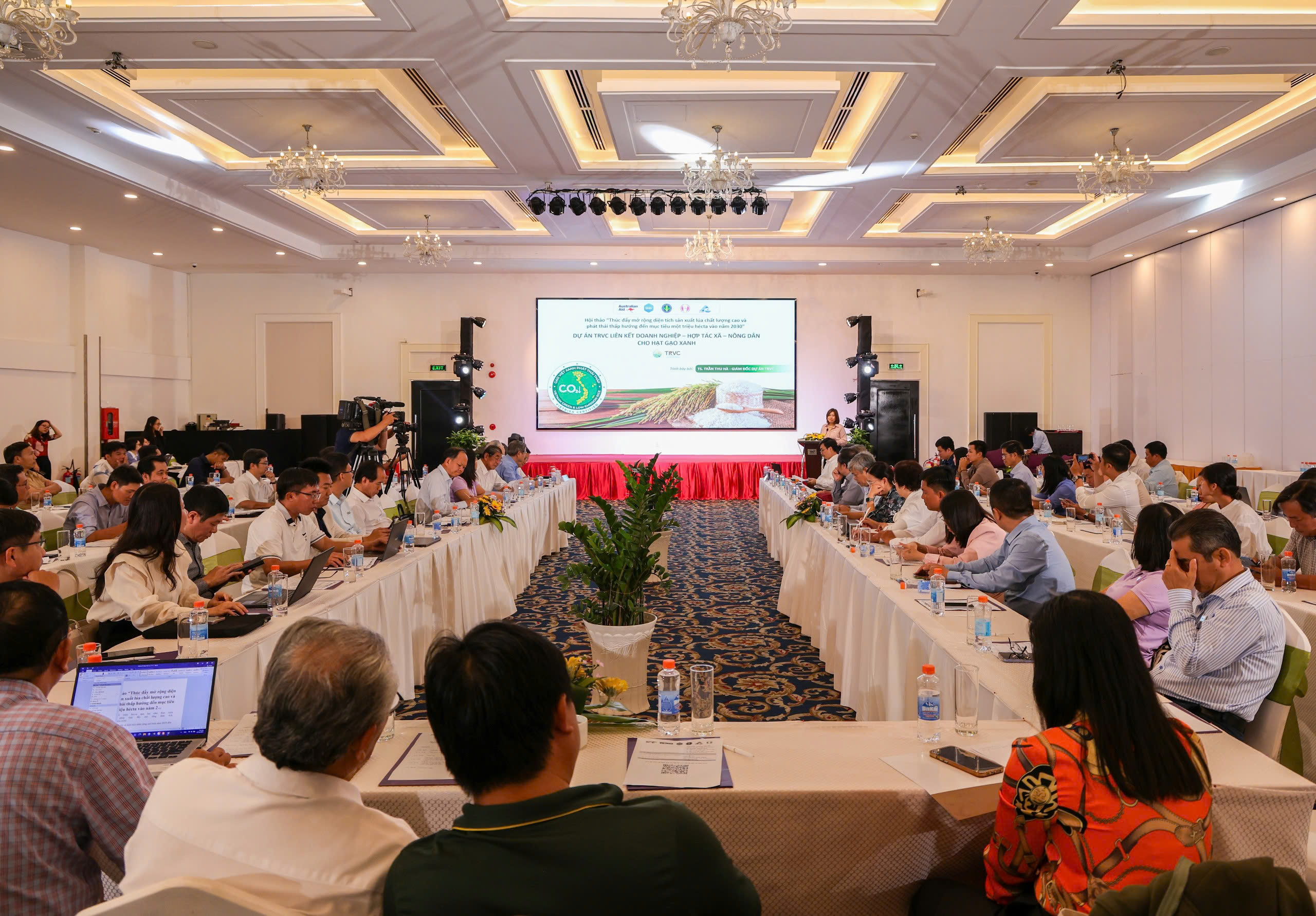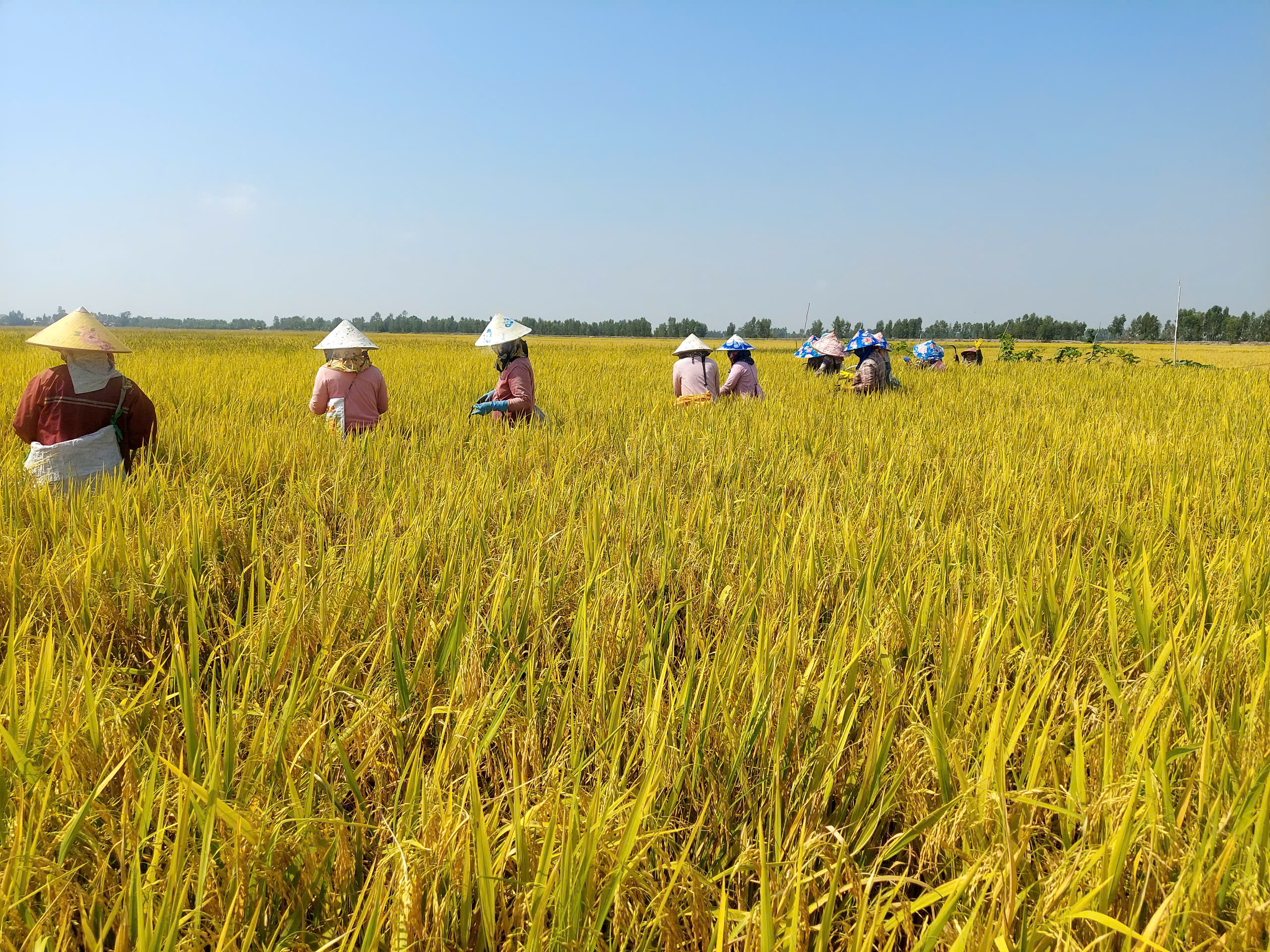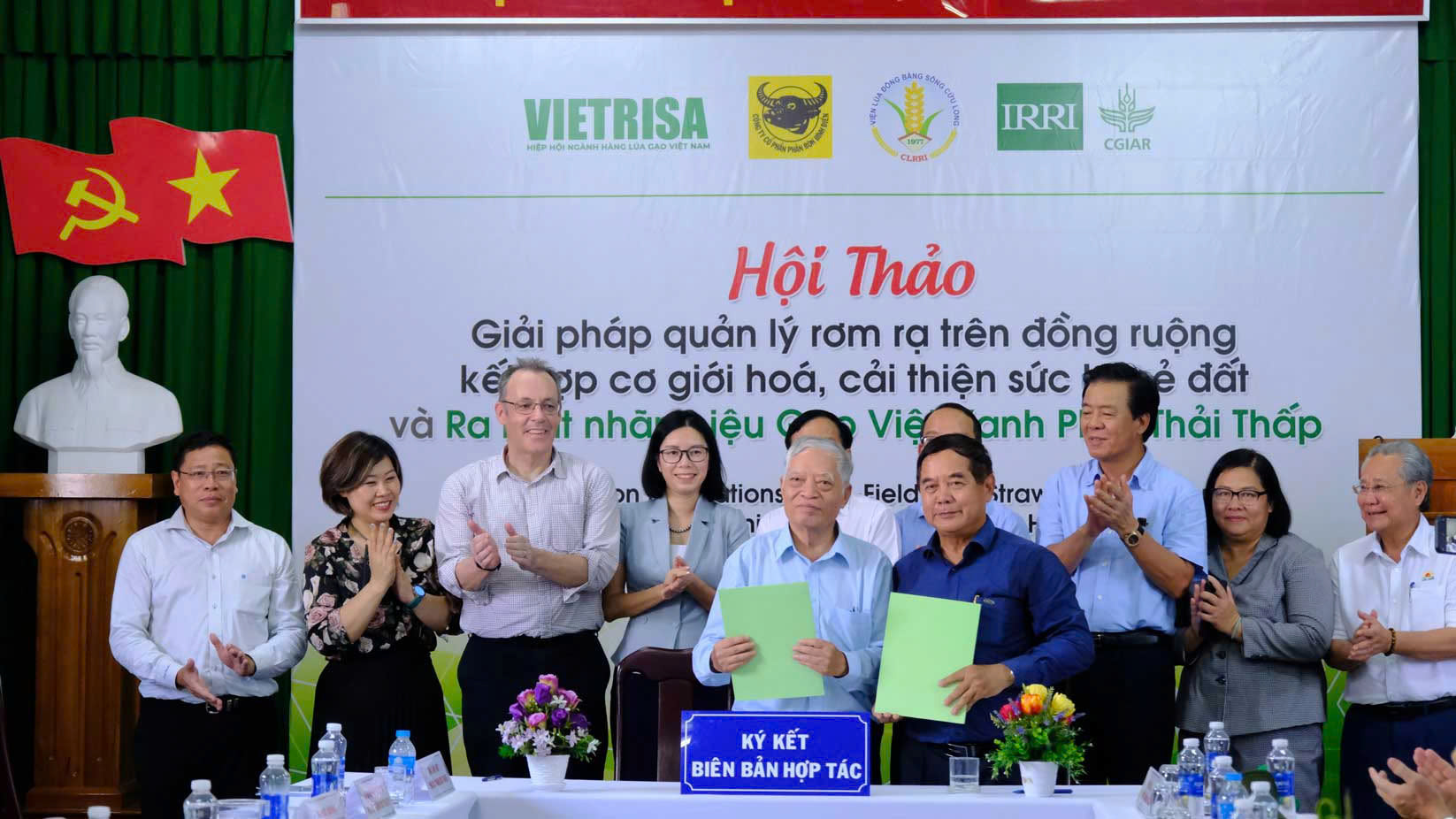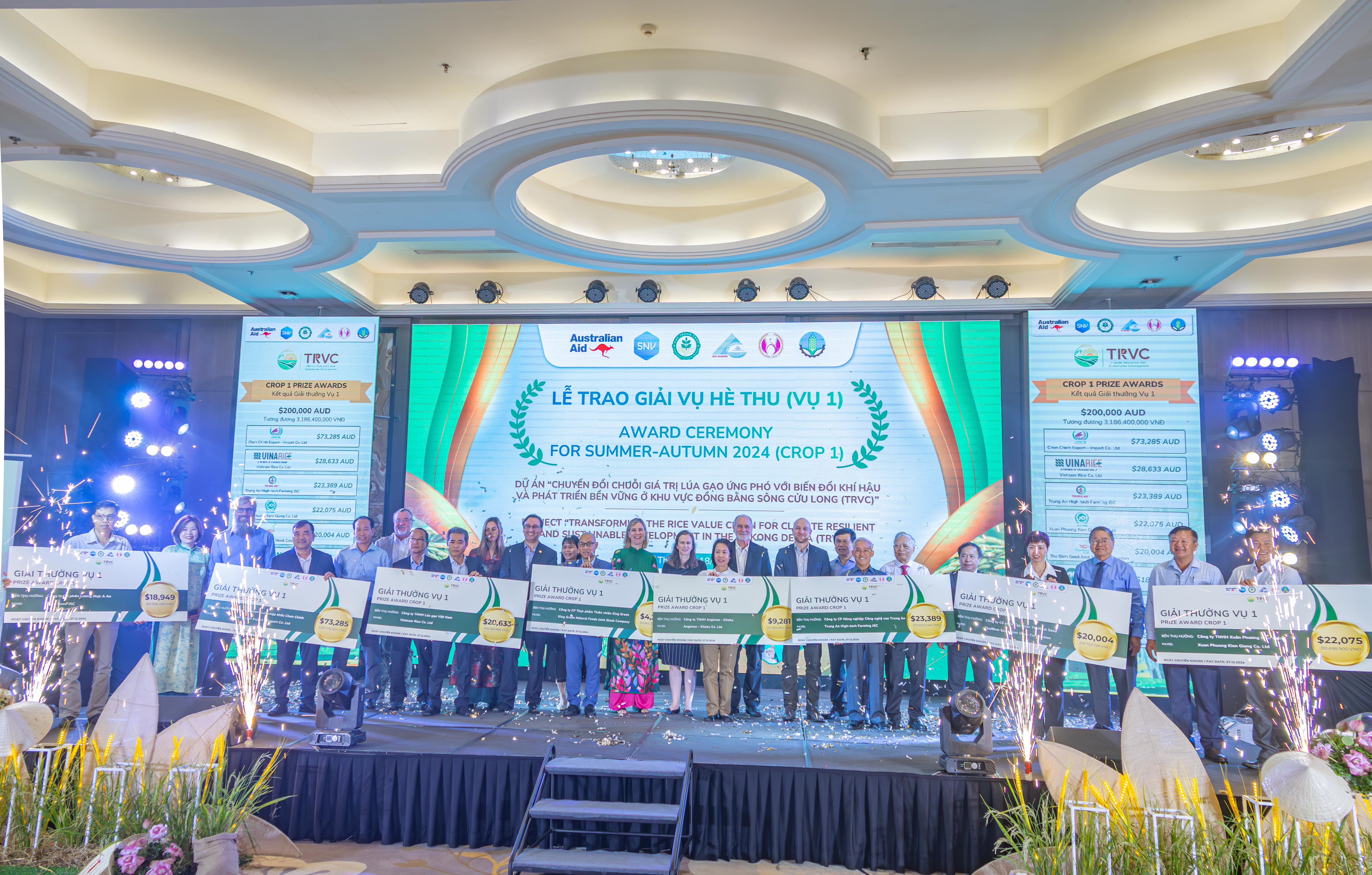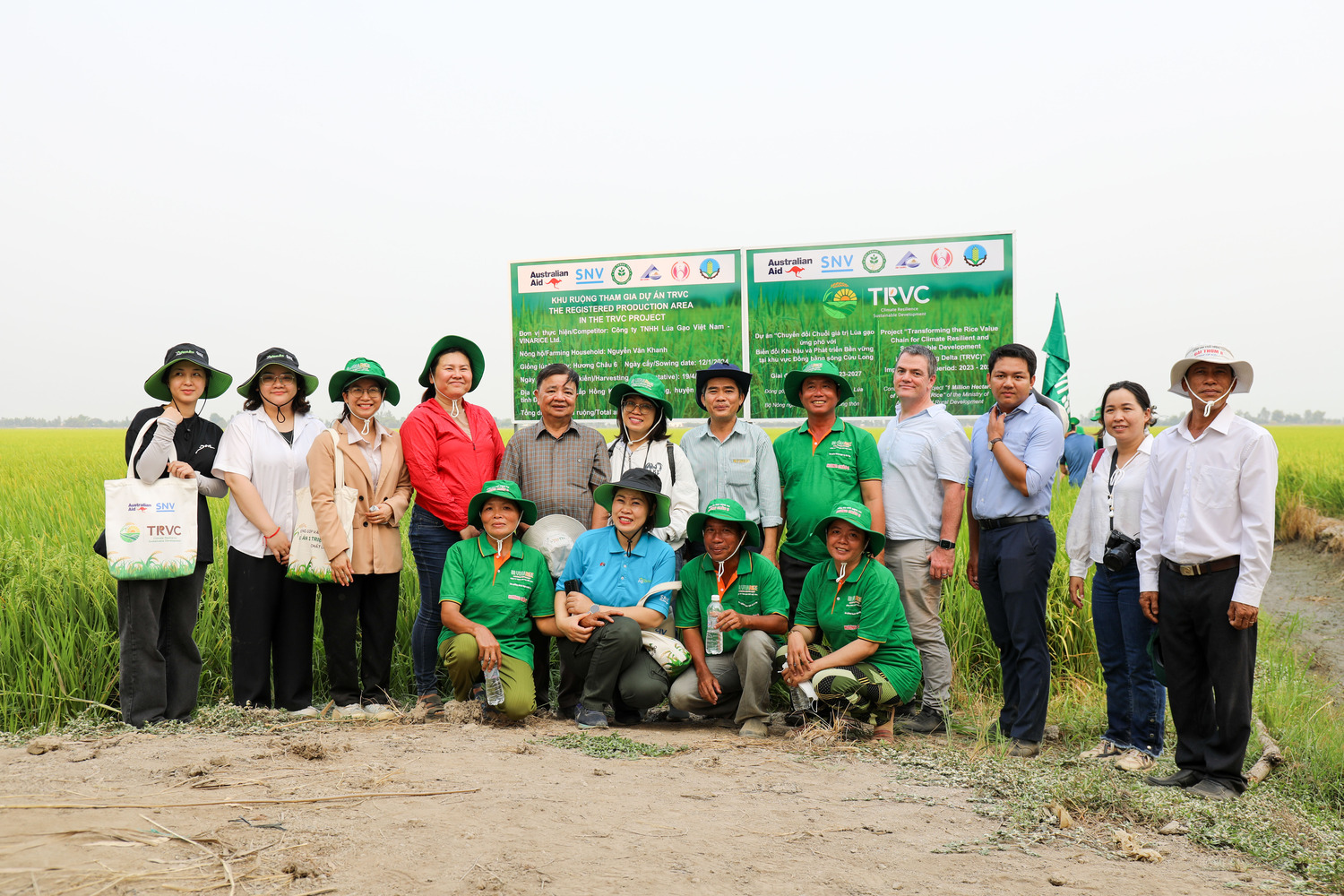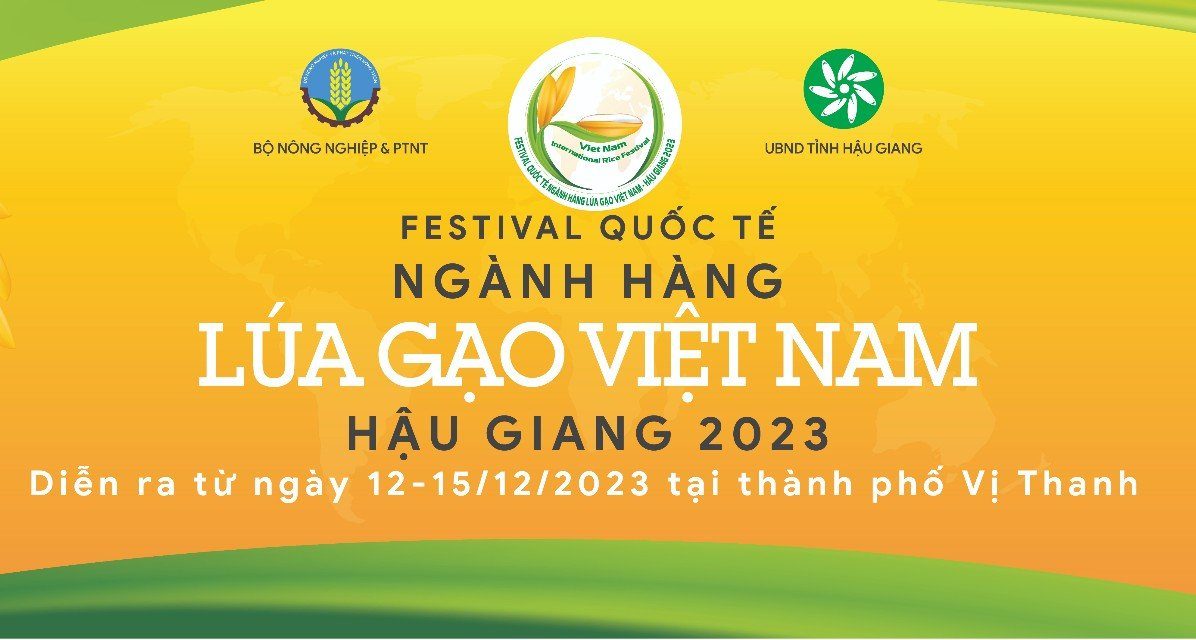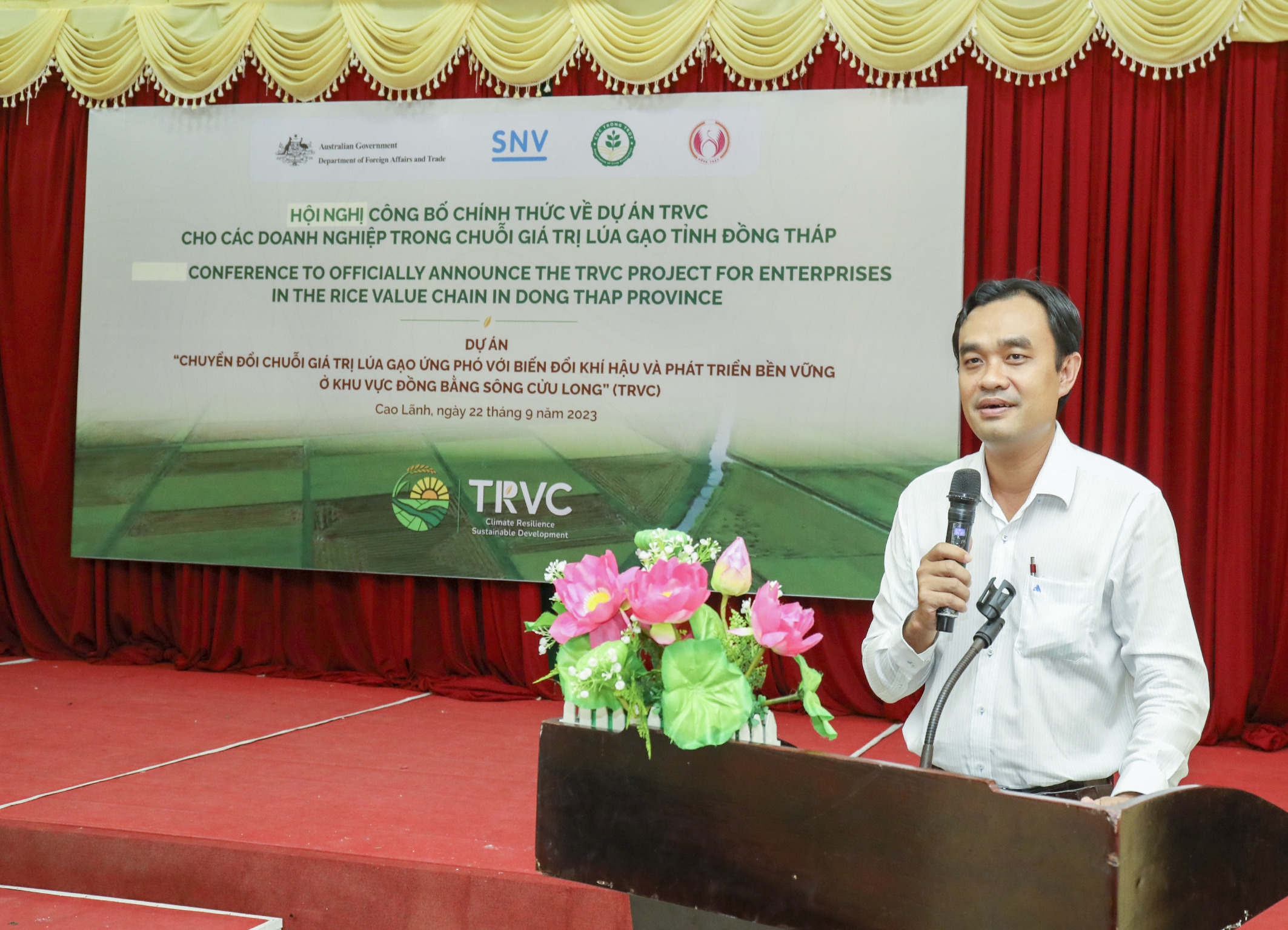Copyright: SNV Vietnam
Can Tho City, on July 26th, 2022, SNV Netherlands Development Organisation in collaboration with the Department of Crop Production, Ministry of Agriculture and Rural Development (MARD) co-organized the National Kick-off Workshop for the Project “Transforming Rice Value Chains for Climate Resilient and Sustainable Development in the Mekong Delta (TRVC)”. Nearly 100 attendees including experts and representatives from SNV Vietnam, representatives from the Australian Embassy in Vietnam, Department of Foreign Affairs and Trade (DFAT) and international organizations in Vietnam; Departments and Institutes of MARD; the Ministry of Natural Resources and Environment; the Departments of Agriculture and Rural Development, Plant Protection Centers and Agricultural Extension Centers of Can Tho, An Giang, Dong Thap and Kien Giang; senior experts in the field of agriculture; and nearly 30 major Rice production and trading companies in the Mekong Delta.
Agriculture plays crucial roles in Vietnam's success in hunger eradication, poverty reduction, and national food security and socio-economic stability. As an agricultural-based economy, Rice production and exports in Vietnam are the mainstays to create employment and earn livelihood for more than 70% of the population. Rice is a strategic crop in the agricultural sector of Vietnam, according to the data published by the International Rice Research Institute (IRRI), the rice cultivation area accounts for 82% of the arable land in Vietnam. About 52% of Vietnam's rice is produced in the Mekong Delta and that of 18% in the Red River Delta.
Under the impacts of climate change, the situation of drought, sea-level rise and saline intrusion have become increasingly severe; thus threatening the production conditions in the region. Necessary actions need to be taken urgently to transition the Rice production industry towards low carbon and climate-resilient development pathways. The Government of Vietnam has promptly developed and issued Decree 06/2022/ND-CP regulating the reduction of greenhouse gas (GHG) and the protection of ozone layer; The Ministry of Natural Resources and Environment has issued Circular 01/2022/TT-BTNMT detailing the implementation of the Law on Environmental Protection regarding the climate change response; and MARD issued Decision 555/QD-BNN-TT approving the Scheme for restructuring of Vietnam’s rice industry by 2025 and 2030. The Scheme for restructuring of Vietnam’s rice industry has emphasized the importance of transforming rice farming towards sustainability, climate change adaptation and mitigation; efficient use of resources and environment protection; increasing income for rice growers and benefits for consumers; increase in quality rather than in yield. Additionally, Vietnam has signed many strategic trading agreements such as CPTPP, EVFTA, creating favorable conditions for Vietnam's rice industry to develop sustainably in the future. At the 3rd Conference on Sustainable Development of the Mekong Delta responding to Climate Change, the Development Partners Group committed to continue collaborating with the Government to accelerate the sustainable and prosperous development of the Mekong Delta towards the climate-resilient pathway.
Building on the success of the "AgResults Vietnam Emissions Reduction Challenge Project” (AVERP) in Thai Binh province, funded by the Australian Embassy in Vietnam, Department of Foreign Affairs and Trade (DFAT), SNV Netherlands Development Organisation continues working with government partners at central and provincial levels to design the Project: “Transforming Rice Value Chains for Climate Resilient and Sustainable Development in the Mekong Delta (TRVC)”. Using Pay-for-Results (PfRs) mechanism, the TRVC Project will incentivize and attract the participation of private enterprises in the Rice Value Chain, aiming to scale-up innovative technologies to achieve higher economic outcomes for smallholder farmers (SHFs) and all Rice Value Chain actors, improve rice quality and inclusive social values while reducing greenhouse gas (GHG) emissions and mitigating environmental footprints as co-benefits. Thereby, the Project will play a catalytic role in creating the transformation of rice production and trading towards sustainability and bringing inclusive values in the most rice-intensive production provinces in the Mekong Delta; actively contributing to the achievement of sustainable and climate-resilient development in the Mekong Delta.
Mr. James Deane, Second Secretary Development, Australian Embassy in Vietnam shared:
“Australia and Vietnam are working in partnership to deliver ambitious, tangible action on the urgent global issue of Climate Change. Working with MARD and SNV to implement this project is an exciting opportunity to both reduce CO2 emissions and help smallholder farmers adapt to the impacts of climate change.”
Figure 1. Mr. James Deane speaking on behalf of the Australian Embassy in Vietnam at the National Kick-off Workshop
Mr. Nguyen Nhu Cuong, Director, Crop Production Department, Ministry of Agriculture and Rural Development shared:
“The Crop Production Department has been committing to shift the ideology of ‘agriculture production’ to ‘agriculture economic’ in which circular production; reducing input for higher economic efficacy and sustainability are key. We highly appreciate the support from the Government of Australia and the international collaboration with SNV to co-implement and co-addressing the challenges of the Rice Sector of the Mekong Delta; and promote the practical innovations and deliver the sustainable values”.
Figure 2. Mr. Nguyen Nhu Cuong speaking on behalf of the Crop Production Dept, MARD at the National Kick-off Workshop
Mr. Peter Loach – Country Director of SNV shared:
“Building on the success of AVERP, we will continue to scale up the remarkable results achieved, thereby incentivizing private enterprises in the Rice value chain to participate in the competition, creating sustainable impacts, towards smart climate-resilient agriculture pathway in one of the most anticipated projects on transforming the Rice value chain in the Mekong Delta.”
Figure 3. Mr. Peter Loach speaking on behalf of SNV Vietnam at the National Kick-off Workshop
The TRVC project (2022-2027) is planned to support livelihood development for about 300,000 rice farmers, reduce GHG emissions by about 200,000 tons of CO2, and save about 15% of input costs for farmers. Proposals of rice farming practices to reduce GHG emissions will be implemented and then tested by international verifiers aiming to scale up in Vietnam. Interested enterprises will be invited to submit a Proposal for Sustainable Rice Production Practices according to the guidelines and roadmap of the TRVC Project.
Top







